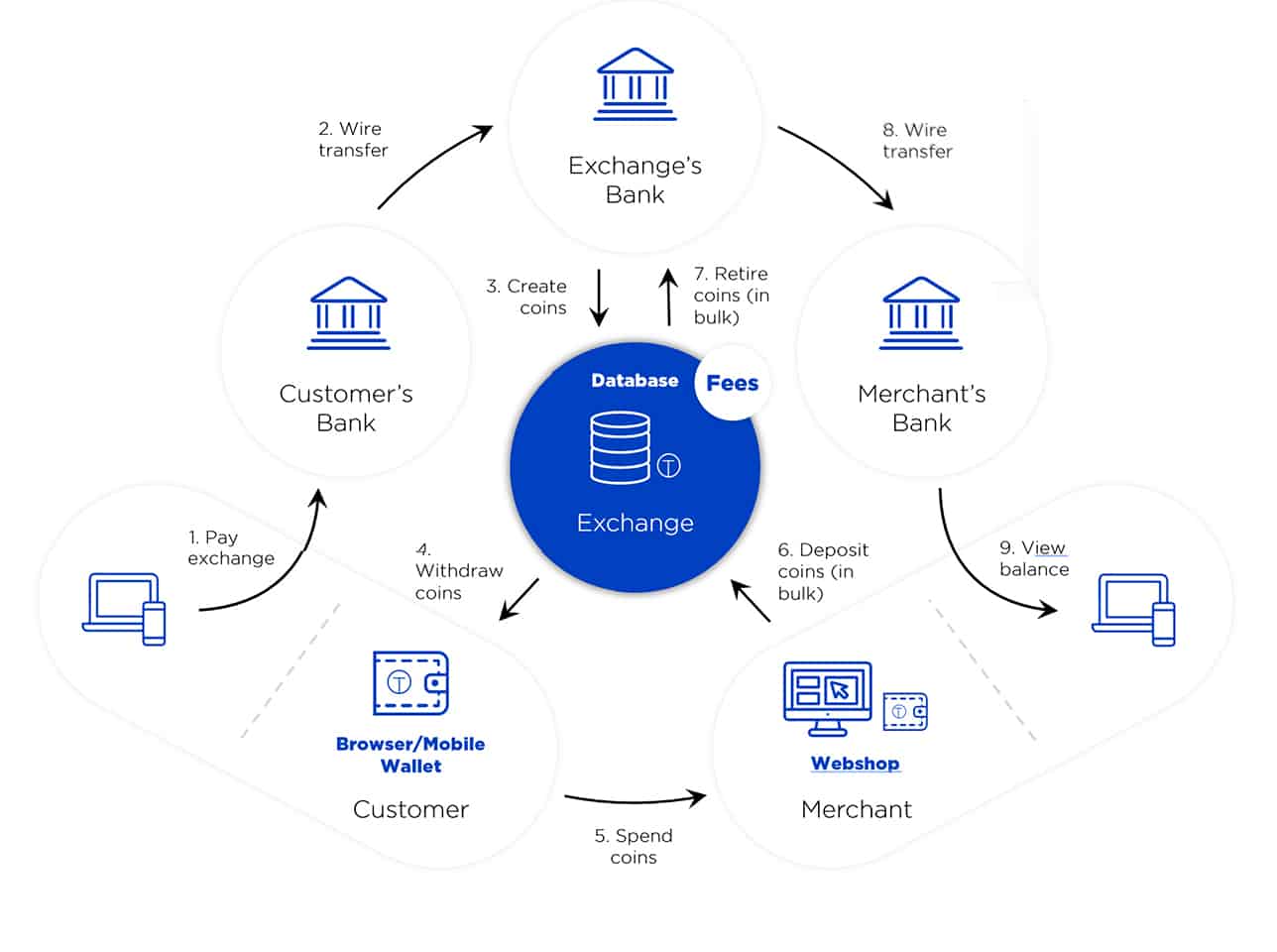I’ve long been annoyed that everyone, including myself uses Paypal/ Venmo for moving money around. What alternatives do you find useful? Here’s a list (https://alternativeto.net/software/venmo/). GNU Taler looks viable (https://taler.net/en/index.html). I would love to have your thoughts!
Edit: Thanks for everyone’s input. I really appreciate it. <3
GNU Taler would be the future privacy-focused alternative if you live in europe. Only if EU sees the potential it has and decides to use it for the upcoming digital euro, that is. For now, you can either use cash irl and monero online. The privacy GNU Taler provides in an online state is between normal card payments and cash, while offline usage is close to cash.
Digital euro: https://www.ecb.europa.eu/euro/digital_euro/html/index.en.html
GNU Taler: https://taler.net/en/
The answer to that is obviously going to be Monero.
Money transfer platforms are even worse than chat apps in terms of how acceptance dictates usefulness. You might convince a couple of friends to use xmpp instead of whatsapp. But its near impossible to get major outlets to integrate new payment methods. Especially if that platform advocates privacy and therefore doesn’t offer a return on invest based on user data. I don’t think we’re gonna see true alternatives without government regulation, and even then…
So true - and I hate having to use specific ones for specific people. Apple Cash works well within my family, I use Venmo for my teen’s drivers Ed, and Zelle for house cleaner
XMR / Monero - open source, fungible, private digital cash
It usually can’t be used with retailors, but you can send your friend circle lunch money and the like easily. https://www.getmonero.org/
Monero is great for online purchases, but a 2 minute confirmation time is real annoying for IRL purchases. Lightning txs confirm in under a second for less fees too.
Your right, depending on the vendor, relationship, and price they could relax it to mempool.
I.e if they know you, then it doesn’t matter as long as they see the transaction got seated. It’s good to go any issues they can ask you in the future
If the transaction is only for a couple dollars, the convenience outweighs the confirmation
Can you explain real world uses for purchases using XMR? Or where online it’s accepted? It seems cash is still king.
Online uses https://kycnot.me/?t=service
You can donate xmr to grapheneos, molly.im etc
Real life, that’s more sticky, if you find someone who is privacy minded and you have a relationship with them you could setup trading for xmr.
If the retailer supports bitcoin or other cryptocurrencies, you can pay with Monero using an exchange with a flat rate such as https://exch.cx or another provider listed on Kyc not me.
I like GNU Taler because it’s privacy preserving for the customer, is Free, Open Source, and is self hosted. And also because it’s not a new/ different currency.
@Atelopus-zeteki How does it work?
As the website states, it’s not a new cryptocurrency coin. It works only if the bank wants to support it since GNU Taler is more like a plugin. When you want to pay a merchant, it directly withdraws money from your bank account and converts it to coins for your wallet to deposit. The bank knows where this coin is sent. However after depositing, the wallet tries to pay the shop. At this point, afaik the wallet makes a cryptographic proof with details like the amount of coins, sends it to the bank and the bank blindly signs it with their private key. Blind signatures are signatures where the signer does not know what the contents of what they are signing are. So the other bank or the shop can know that it came from that bank without the bank knowing from where the coins came. The bank however knows where the coins are going, so you can hold them accountable in case something happens. But you of course must reveal your identity for those things. Since cryptography is used, you can prove payments to merchants. GNU Taler can also be used offline, but I don’t know how that works.
(there might be misconceptions in here so don’t take my words blindly)
Here’s a nice image I found online:

Thank you, that’s most helpful. And no I won’t take your words blindly. Trust, and verify. :-) I’ll need to make sure my bank/ credit union is on with GNU Taler, tho’ it sounds unlikely, at this time.
Hellifiknow. I’m just some frog on the intarwebs who wants to learn. :-) Can someone elaborate on GNU Taler?
GNU Taler looks interesting, but is it usable today?
It’s apparently designed around exchanges, and I don’t see any exchanges mentioned on the site. Do any actually exist?
The FAQ mentions depending on wire transfers, which have famously high fees that would have to be passed on to users somehow. Aggregating payments into delayed settlement transfers could mitigate that cost between high-volume organizations, but it won’t help people who just need send money to each other. (Meanwhile, ACH transfers are practically free, but I don’t know if they fit Taler’s design or plans.) Does Taler have a plan to solve this?
No, but it has potential to become the new digital euro in Europe. I hope it does.
I don’t quite understand how it works yet, so wonder: would it work in sanctioned locations, like how, say, Monero can?
Taler is not ment to be completely censorship resistant. It takes the side of dealing with goverment, law and other things and is expected to be used in areas with working democracy.
A private alternative to MasterCard, PayPal, Stripe, etc. not a new currency or completely different banking system. And we need it.
It can work in any place, as long as the sender’s and the recipient’s banks support GNU Taler. But it is not as private as monero.
Ah. I know that a bank is involved with a recipient, but didn’t know a sender needed one too. But as long as the Taler works between banks that are prohibited to interact too - it would be very useful then!
Yeah well, it functions kind of like a nornal cryptocurrency wallet. You send those GNU Taler coins to another GNU Taler wallet. These coins can be directly converted to normal currency via the bank.
So technically, you could buy it from a random KYCless seller like you can Monero too?
Yeah. Technically that should be possible. But why would you do that is the real question. Afaik you won’t be able to use GNU Taler without an existing backend. Your backend would be a bank and why not just withdraw coins from there. I don’t know whether you can self host the backend. There would be no reason to be afraid of the bank knowing where you send the coins to as that is pretty much hidden from the bank. I explained GNU Taler to my best abilities in this comment: https://lemmy.world/comment/10414943
Why would I do that? Maybe if my bank doesn’t want to support a private currency like that. Or if they’re a legal gray area like crypto now is, so while it is semi-legal now, might change in the future.
Zelle
I’ve seen Zelle recommended. And as it turns out my bank uses it, as well. From Alternativeto:
License Model: Free, Proprietary Platforms; Android, iPhone
Zelle® has partnered with leading banks and credit unions across the U.S. to bring you a fast, safe and easy way to send money to friends and family. Money moves quickly - directly from bank account to bank account.
Partenered with? It’s owned by BOA, US Bank, Wells Fargo and JP Morgan Chase. Might be used by smaller folks too but was started by those goons to try to capture mobile and p2p needs and is proprietary and doubtless whores your data. Stay away.
BTC lightning.
Why are you annoyed by Paypal and Venmo? What do you want changed? KYC and these companies having control of your money is common on all these everyday platforms. If you want a real change you need to use self custodial non-KYC crypto currencies.
I use lightning on the regular. Transactions confirm in under a second, fees often less than a penny. Works incredibly well. For custodial wallets (less privacy but you can connect to your bank account to buy/sell BTC and they are as easy to use as venmo) check out Strike. For non-custodial wallets, Phoenix is great and super easy, for maximum privacy use Zeus but it’s slightly more complex than Phoenix.
Lightning, like Bitcoin which it is built on, provide pseudonymity not anonymity. Understand the difference and look into it if you’re curious. Still vastly better than credit cards, banks, etc when it comes to privacy.
I’m annoyed by Paypal, Venmo (and other similar vehicles) because they use what should be a simple process (one person giving money to another person) to invade our privacy and to siphon value towards billionaires. I’d rather be able to transfer funds with the simplicity and precision of giving the person standing before me a ‘fiver’. And without someone else making bank off the transaction, for clarity’s sake.
KYC defined: “The Know Your Client (KYC) or Know Your Customer (KYC) is a process to verify the identity and other credentials of a financial services user. KYC is a regulatory process of ascertaining the identity and other information of a financial services user.” https://corporatefinanceinstitute.com/resources/wealth-management/know-your-client-kyc/
Zelle is the closest acceptable alternative to PayPal, Venmo, and Cash App.
Related: I think FedNow (USA) might enable transfers between individuals once the tools and user-facing services are developed. It’s very new.
It’s worth noting that any way to electronically move money is unlikely to stay both private and convenient for long after getting popular, because governments generally don’t like that.
FedNow looks very interesting.








